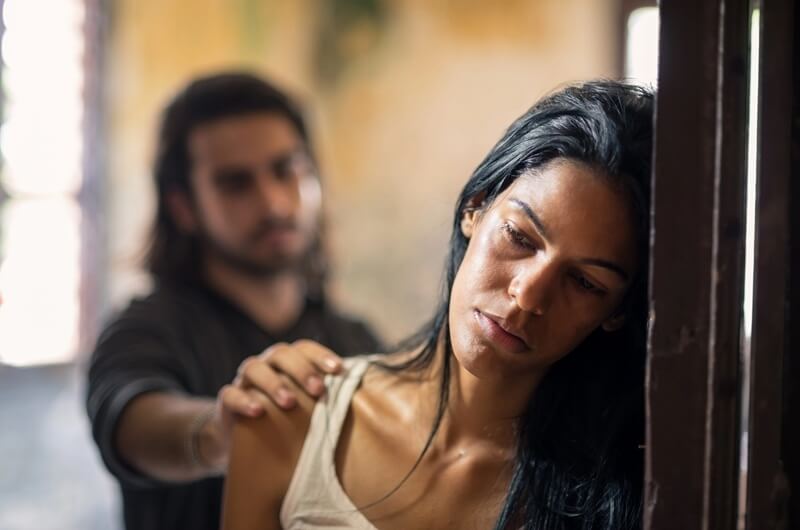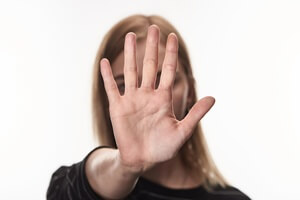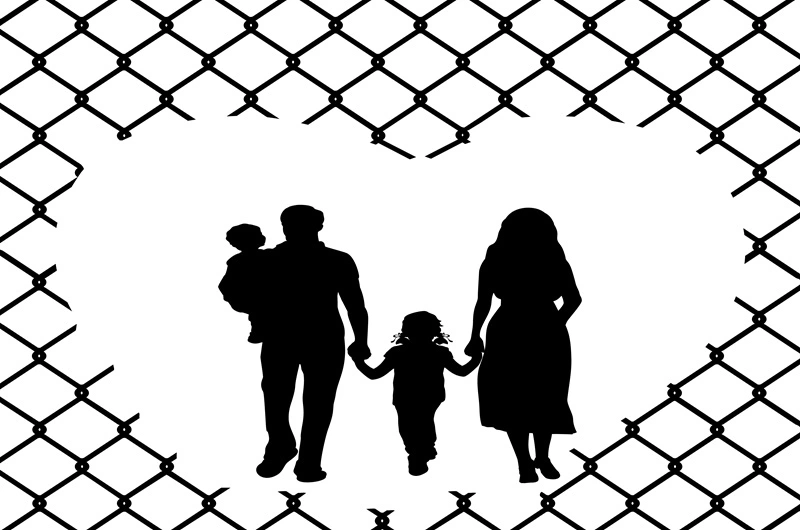VAWA Immigration Qualifications Explained
Summary
- VAWA allows certain abuse survivors to apply for lawful status independently of their abuser.
- Eligible applicants include spouses, children, and parents of U.S. citizens or green card holders.
- Applicants must show proof of the relationship, abuse, and good moral character.
- Self-petitioners may later apply for a green card through adjustment of status.
- Legal support ensures the application meets all VAWA immigration requirements and deadlines.
For many, immigration is not just about opportunity; it’s about survival. When abuse happens within a family tied to immigration status, fear and silence often take over. But the law offers a way forward.
The Violence Against Women Act (VAWA) offers protection and independence to people in abusive relationships with U.S. citizens or green card holders. Through VAWA, you can apply for immigration relief confidentially, without your abuser’s involvement.

Who Can Qualify For VAWA?
VAWA immigration protections are open to more than just spouses. If you’ve experienced abuse and have a qualifying relationship with a U.S. citizen or lawful permanent resident, you may be eligible.
Spouses
You may qualify if your spouse is a U.S. citizen or a green card holder, you entered the marriage in good faith and experienced battery or extreme cruelty during the marriage.
Children
Children under 21 (and unmarried) may self-petition if their parent is a U.S. citizen or a green card holder, they suffered physical or emotional abuse from that parent.
Parents
Parents of U.S. citizens (age 21 or older) may apply if their child was abusive toward them, they lived with the child and suffered cruelty or mistreatment.
If you meet the basic relationship and abuse requirements, you may have a path forward. VAWA protects both documented and undocumented survivors.
VAWA Is Not Just For Women
Despite its name, VAWA is not limited to female applicants. People of any gender or identity can apply, as long as they meet the qualifications and have suffered battery or extreme cruelty.
It includes men abused by their spouses or children and LGBTQ+ individuals in abusive relationships. They are survivors of emotional or psychological abuse, not just physical violence.
VAWA protects people, not just women. The law is there for any survivor who needs immigration relief without risking further harm.
What Counts As Abuse?
VAWA covers “battery” and “extreme cruelty.” These terms go beyond physical harm. Many forms of control and violence may meet the standard.
Examples Of Abuse Under VAWA
Examples of abuse under VAWA include hitting, slapping, or other physical harm, as well as threats of violence or deportation that create fear and control in the relationship.
Other Qualifying Abuse
Other qualifying abuse may involve controlling money or access to basic needs, isolating someone from friends, work, or family, and verbal or psychological mistreatment that damages emotional well-being.
You don’t need visible scars to qualify. If your relationship involved fear, control, or manipulation, you may have experienced abuse that VAWA recognizes.
Evidence You’ll Need To Apply
You don’t need police reports or a conviction to file a strong VAWA case. But you do need credible evidence that shows your relationship and that the abuse occurred.
Types Of Evidence That Help
- Marriage or birth certificates to prove the qualifying relationship.
- Personal statements or affidavits explaining the abuse.
- Photos, texts, emails, or letters that document mistreatment.
- Medical or mental health records.
- Letters from friends, clergy, or counselors who witnessed the abuse.
Even if you don’t have official reports, your voice matters. Honest, detailed statements supported by evidence are key to a successful VAWA petition.
How To File A VAWA Petition
To apply for VAWA immigration relief, you must submit Form I-360 to USCIS. You can file alone; your abuser won’t be notified and involved.
Basic Filing Steps
- Complete and sign Form I-360.
- Prepare a declaration describing the abuse.
- Include supporting documentation.
- File with USCIS, following the official mailing instructions.
- Track your case and respond to any Requests for Evidence (RFEs).
Filing through VAWA is confidential and designed for your safety. You do not need your abuser’s signature, approval, or knowledge to move forward.
What Happens After You File?
If your I-360 is approved, you may become eligible for a green card (lawful permanent residence). Whether you can apply right away depends on your situation.
Adjustment Of Status Application
You may be able to apply for a green card right away if you’re an immediate relative of a U.S. citizen. You’re in the U.S. and otherwise eligible.
Waiting For A Visa Number
If your abuser was a green card holder, you may need to wait for your priority date to become current before applying for a green card.
Approval of the I-360 opens doors, but timing matters. Know whether your case qualifies for immediate adjustment or if you must wait for a visa number.
Common Challenges In VAWA Cases
VAWA cases are powerful, but they aren’t always easy. Survivors often struggle with fear, lack of documentation, or doubt. USCIS may issue a Request for Evidence if something’s unclear.
Typical Problems VAWA Applicants Face
- No formal police report or medical evidence.
- Difficulty proving “good faith” marriage.
- Fear of reporting abuse while living with the abuser.
- Gaps in moral character due to past trauma or arrests.
These challenges don’t make you ineligible, but they do require clear explanations. With the right guidance, you can present a complete and convincing case.
Can You Apply If You’re Undocumented?
Yes. VAWA protections extend to undocumented immigrants. Your lack of legal status does not prevent you from filing or qualifying for relief under this law.
Things To Keep In Mind
When applying, you must still meet all eligibility requirements for the immigration benefit you’re seeking, even if you qualify under a special program like VAWA or another humanitarian route.
You may qualify for work authorization during the process. While approval doesn’t automatically grant a green card, it’s an important step toward obtaining lawful permanent resident status.
Even if you entered without inspection or overstayed a visa, VAWA may offer a path forward. Don’t let fear or misinformation keep you from exploring your rights.
Table Of VAWA Legal Terms
| Legal Term | Plain-English Definition |
| VAWA | Violence Against Women Act, a law that protects abuse survivors seeking immigration relief. |
| Form I-360 | The immigration form used to self-petition for VAWA protections. |
| Self-Petition | Applying for immigration relief without needing your abuser to sponsor or know about the petition. |
| Battery or Extreme Cruelty | Physical, emotional, or psychological abuse that meets VAWA’s standard for protection. |
| Adjustment of Status | The process of applying for a green card from inside the United States. |
| Good Moral Character | A legal requirement showing you have not committed serious crimes and generally follow the law. |
| RFE (Request for Evidence) | A notice from USCIS asking for more information or documents before making a decision. |
| Immediate Relative | Spouse, parent, or child (under 21) of a U.S. citizen is eligible for faster immigration processing. |
| Priority Date | The date USCIS receives your petition; used to determine when you can apply for a green card. |
| USCIS (U.S. Citizenship & Immigration Services) | The federal agency that handles immigration forms and decisions. |
How We Can Guide Your Journey
VAWA is more than a form; it’s a legal lifeline. At Lincoln-Goldfinch Law, we guide survivors through every step, offering confidentiality, compassion, and confidence in your immigration journey.
For VAWA clients, we offer safe and confidential consultations without judgment or pressure, ensuring your story is heard and your options are explained clearly from the start.
Our bilingual team supports you in English and Spanish, helps gather evidence and write personal declarations, manages complex VAWA cases, and guides you from filing to potential green card approval.
With our team on your side, you don’t have to go through this alone. We believe in your story, and we’re ready to help you claim your legal right to safety.
VAWA Is A Brave Step Toward Freedom
Filing under VAWA is an act of strength. It means choosing yourself, your future, and your right to live free from fear. It’s not an easy step, but it’s a powerful one.
With help, you don’t have to feel alone or overwhelmed. Every survivor deserves safety, and VAWA provides a path toward that goal through immigration status and eventual permanent residency.
If you’ve experienced abuse and need immigration support, Lincoln-Goldfinch Law is here for you. Let’s take the next step, together.
Contact A U.S. Immigration Attorney Today!
Categories
How To Find Us
What Our Clients Say
“This Lawfirm is great, very professional and helpful. I love that they are always in communication and always available for when you have questions . 100% recommended by me and my family. Thank you Lincoln-Goldfinch Law – Abogados de Inmigración”




